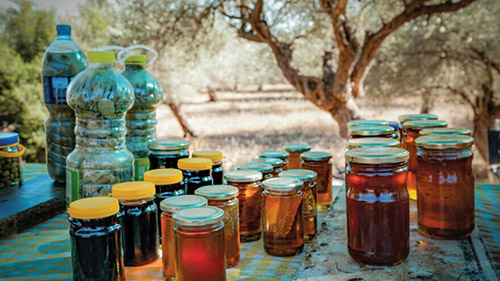
Technion team’s synthetic honey is produced by a bacterium that “learns” to make it following reprogramming in a lab.
With the global population of bees in decline, honey could become a rare commodity on supermarket shelves.
That’s why a team of 12 students from the Technion-Israel Institute of Technology has been working for the past year on the development of a bee-free honey. It’s produced by the bacterium Bacillus subtilis, which “learns” to make honey following reprogramming in a lab.
Their efforts have met with sweet success: The team won a gold medal at the recent iGEM (International Genetically Engineered Machine) competition held in Boston. Some 300 teams from universities around the world took part.
This is the sixth gold medal Technion students have won at iGEM since it was established in 2004 by the Massachusetts Institute of Technology to give students the opportunity to experiment in synthetic biology.
In addition to developing the science, an equally important component of iGEM involves creating a real business enterprise. The Technion team created its own website and a catchy company name: BeeFree.
“Our vision is to create a sustainable BeeFree honey using engineered bacteria, which will process a nectar-like solution using secreted enzymes that mimic the honey stomach environment,” the website states. (The honey stomach, or crop, is used by bees to store liquids for later regurgitation.)
The team collaborated with two Israeli technology firms: Bio-castle, which makes a product that biodegrades contaminants in water (they used it to collect the proteins needed to make synthetic honey), and Tsuf Globus, which produces herbal “medical honey.”
Students from six different disciplines—biomedical engineering, medicine, biotechnology and food engineering, industrial management and engineering, chemical engineering and aerospace engineering—came together to create BeeFree.
“The [win is] definitely exciting, but equally important is the intellectual property created around the project,” said Professor Roee Amit, who heads the Technion’s Synthetic Biology Laboratory for the Decipherment of Genomic Codes.
For honey-lovers, continued availability of the sweet stuff will be its own reward—at any price.
By Brian Blum/Israel21c










